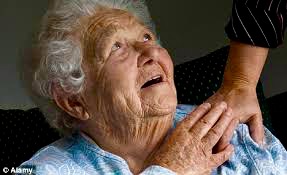In Re Singh 2017 BCSC 984 the court invoked its parens patriae jurisdiction and ordered a 93 year old father to undergo a mental capacity examination by two geriatric doctors .
Two of his six children claimed that their father was mentally incompetent to manage his own affairs and asked the court to order an assessment by two geriatric doctors. Based on his mental capacity exam, if he was found to be incapable then they sought to be appointed his committee under the Patients Property act. The other four children opposed the application. The family doctor stated that he showed signs of vascular dementia and had good days and bad days.
The court held that while it was an intrusion into the patients life it was important enough to order the mental capacity examinations under the inherent jurisdiction of the court to protect those who were incapable of protecting themselves.
35 Sections 3 and 5 of the Patient’s Property Act govern the procedure for obtaining a declaration of incapability. Those sections provide, in relevant part:
Hearing of application
3(1) If, on
(a) hearing an application, and
(b) reading the affidavits of 2 medical practitioners setting out their opinion that the person who is the subject of the application is, because of
(i) mental infirmity arising from disease, age or otherwise, or
(ii) disorder or disability of mind arising from the use of drugs,
(iii) incapable of managing his or her affairs or incapable of managing himself or herself, or incapable of managing himself or herself or his or her affairs,
The court is satisfied that the person is, because of
(c) mental infirmity arising from disease, age or otherwise
Examination 5(1) If
(a) an application is made or an issue is tried under section 3,
(b) an appeal is taken from an order under section 3, or
(c) an application is made under section 4,
the court hearing the appeal or application or trying the issue may order the person who is the subject of the application or the patient to attend and submit at the time and place the order directs to examination.
(2) An examination under this section must be made by
(a) one or more medical practitioners other than those whose affidavits were before the court on the appeal, application or trial, or
(b) a board of 3 or more medical practitioners designated by the College of Physicians and Surgeons of British Columbia at the request of the court.
36 In the leading case of Temoin v. Marlin 2012 BCCA 250, Neilson J.A., for the Court, observed at para. 27 that this legislation “reflects the tension between the right to personal autonomy and the protection of vulnerable individuals”.
37 I take the following principles from Temoin:
- There is no statutory authority to order a person to undergo the medical examinations required for an application under s. 3 of the Act (at para. 48).
- There is a gap in the Act, which provides no protection for individuals who appear to be incapable but have no access to physicians, or who refuse to be medically examined (at para. 51).
- The parens patriae jurisdiction is founded on the need to protect those who cannot care for themselves. The court’s discretion must be exercised to do what is necessary for the protection of the person for whose benefit it is exercised (at para. 55, citing Re Eve, [1986] 2 S C.R 388).
- The Court may exercise its powers under its parens patriae jurisdiction to fill in the gap by making what is effectively a provisional finding of incapacity for the limited purpose of bringing an individual within the Act and its procedural safeguards. However, this power must be exercised cautiously, and only on a proper evidentiary basis (at para. 56).
- The Court’s parens patriae jurisdiction must be used for the benefit of the person in need of protection, and not to benefit others (at para. 60).
- The application to compel a person to undergo the two medical examinations required for a declaration of incapability engages the Charter values of liberty, autonomy and equality. “Those values are given meaning by requiring a level of proof that is commensurate with both the importance of the individual interests and the seriousness of the intervention at stake” (at para. 60).
- The test for the exercise of the parens patriae power requires the applicant to present evidence establishing a serious question to be tried, both with respect to the individual’s capacity and his or her need for protection (at para 61).
38 In Temoin, at para. 61, the court also approved the test stated by the chambers judge: a requirement for “prima facie evidence of incompetence and a compelling need for protection








